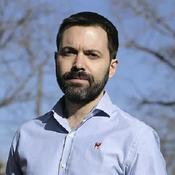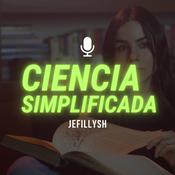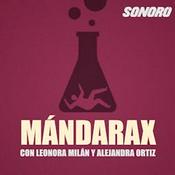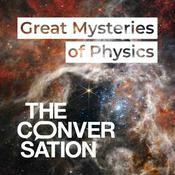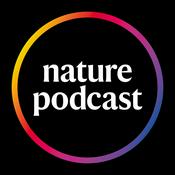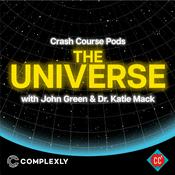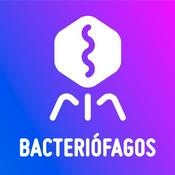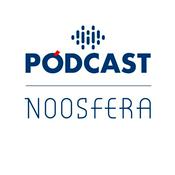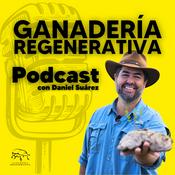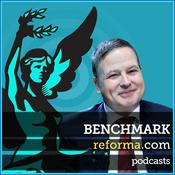7 episodios

The humble heat pump: the easiest way to dramatically cut your emissions
11/12/2024 | 33 min
Of all the climate solutions out there, the heat pump is a no brainer. Not only will it reduce your emissions by 60 per cent or more, it's cheaper to operate, improves air quality and makes your home more comfortable. Despite these many qualities, many people are getting talked out of getting a heat pump by their HVAC contractor. Guests: John Gultig, heat pump owner, Michelle Hjort, Energy Advisor at Energy Neighbour and carbontech innovator Phil de Luna.

Beef is the worst food for the climate. Can it be done better?
04/12/2024 | 34 min
Sometimes it feels like you need a PhD to figure out how to shop for lower carbon groceries. Why isn't there a simple rule of thumb to follow? Host Marco Chown Oved starts this episode with a simple question: What's more important for the climate, what you eat or where it comes from? And the answer is: It isn't even close. Guests: Jonathan Foley, Executive Director of Project Drawdown, Cory Van Groningen, beef farmer at Hillview Farm, partnered with VG Meats and Rowe Farms, Brent Preston, farmer at The New Farm, President of Farmers for Climate Solutions.

E-bikes are popular because they're basically small cars
27/11/2024 | 34 min
We live in a world built for cars. But as we sit in endless traffic, it's hard not to think they've become a victim of their own success. Enter e-bikes. They're big enough to replace delivery trucks, but small enough to zip past the bumper-to-bumper gridlock. They're increasingly popular among food delivery people, families with young kids and seniors and soon may be replacing pick up trucks as a rural mode of transportation. Jennifer McLaughlin, manager of rider experience at Zygg E-Bikes, Kevin McLaughlin, founder of Zygg, AutoShare and Evergreen and Joanna Kyriazis, director of public affairs at Clean Energy Canada.

Plastic is everywhere, it's made of oil and it lasts 1,000 years
20/11/2024 | 33 min
Plastic is a miracle substance that's revolutionized healthcare, keeping things sterile, and has replaced glass and metal packaging, reducing carbon emissions from shipping goods. It even keeps produce fresh for longer, reducing waste and the carbon emissions that come from rotting food. But those positives have for too long overshadowed the negatives. Some plastic is toxic. It's building up in the ecosystem and in our bodies. Today, plastic can be found in virtually every aspect of our lives. Not only in shopping bags, pop bottles and straws, but in places you'd never expect, like furniture and construction materials, and clothes. Yes clothes. Join us for a shopping trip to learn how your pants are contributing to climate change. Guests: Kelly Drennan, founder of Fashion Takes Action and Max Liboiron, a professor of geography at Memorial University of Newfoundland and director of the Civic Laboratory for Environmental Action Research (CLEAR).

Fire is both the cause and effect of climate change
13/11/2024 | 32 min
The way we talk about climate change needs to, well, change. Everything is either invisible, like emissions, or incomprehensible, like megatonnes, or inconceivable, like reductions of national emissions 25 years in the future. The cause of climate change is simple: it's fire. To end global warming, we need to stop burning things. Guests: Tim Stezik of Toronto Fire Services, Lytton fire survivor and author Meghan Fandrich and Pulitzer Prize finalist and author of Fire Weather, John Valliant.
Más podcasts de Ciencias
Podcasts a la moda de Ciencias
Acerca de Small Things Big Climate
Escucha Small Things Big Climate, Podcast de Juan Ramón Rallo y muchos más podcasts de todo el mundo con la aplicación de radio.net
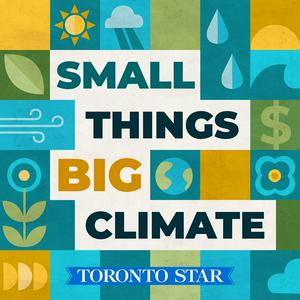
Descarga la app gratuita: radio.net
- Añadir radios y podcasts a favoritos
- Transmisión por Wi-Fi y Bluetooth
- Carplay & Android Auto compatible
- Muchas otras funciones de la app
Descarga la app gratuita: radio.net
- Añadir radios y podcasts a favoritos
- Transmisión por Wi-Fi y Bluetooth
- Carplay & Android Auto compatible
- Muchas otras funciones de la app


Small Things Big Climate
Descarga la app,
Escucha.
